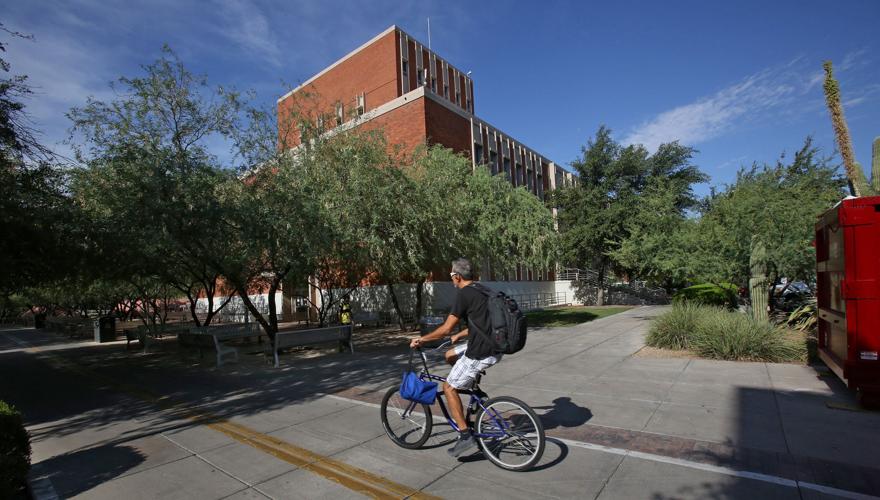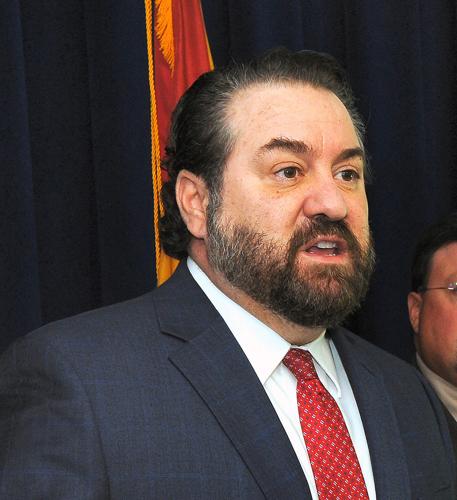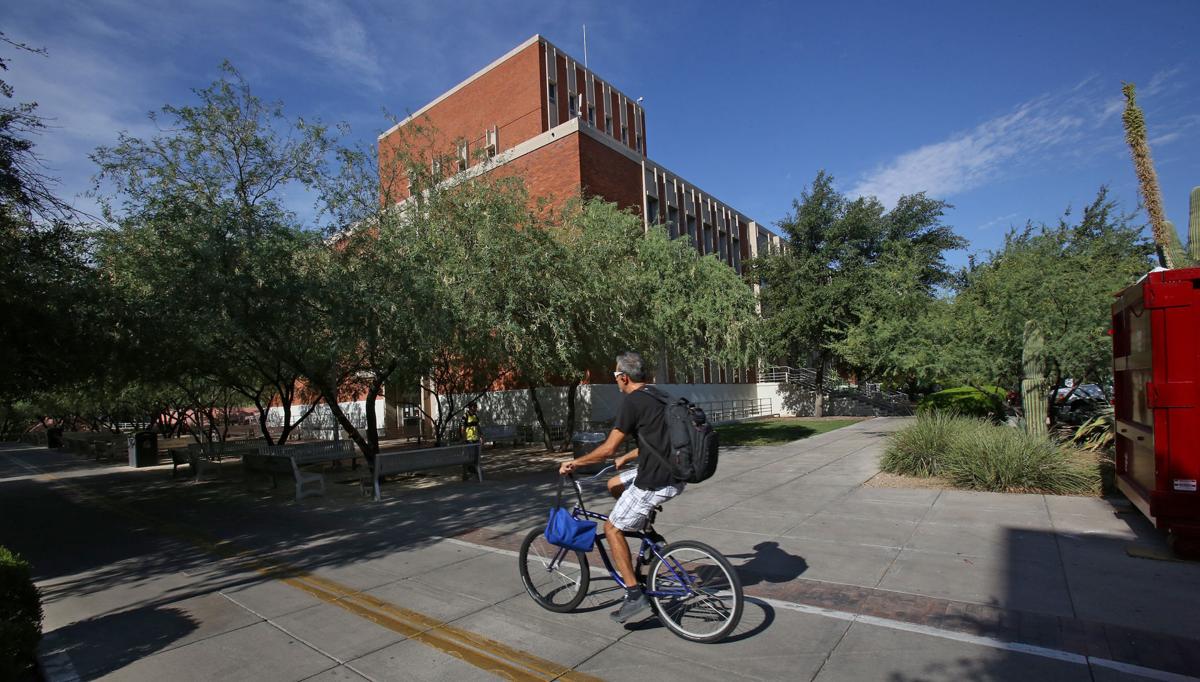PHOENIX — The Arizona Supreme Court has slapped down legal efforts by Attorney General Mark Brnovich to challenge the tuition charged at the state’s three universities.
But the justices did give him the go-ahead to sue the Board of Regents over what he calls an illegal subsidy of tuition for “dreamers.”
And that opens the door for his lawyers to question university officials about how tuition is set and help Arizona taxpayers decide if they are getting their money’s worth out of higher education, Brnovich told Capitol Media Services.
In a unanimous decision Wednesday, the justices did not address Brnovich’s assertion that sharp tuition increases of the past decade violate a constitutional provision that instruction be “as nearly free as possible.”
The attorney general also argued that the Board of Regents, which approved the rates, relied on extraneous and illegal outside factors, such as what state-run universities elsewhere were charging, to determine how much students here should pay.
But Justice Clint Bolick, writing for the court, said that is all legally irrelevant as Brnovich has no legal right to bring the lawsuit in the first place.
He pointed out that state law allows the attorney general to bring legal actions only when specifically authorized by statute or with permission of the governor.
In this case, Bolick said, there is no legislative authority. And Gov. Doug Ducey, who has been openly hostile to the legal challenge, also never authorized it.
Larry Penley, who chairs the Board of Regents, said he sees the ruling as a win. He said the state deserves “an attorney general who respects the law and does not overstep the vested authority of the office.”
Wednesday’s ruling, however, was not a total loss for Brnovich.
The justices said he does have the power to sue for recovery of illegal expenditure of state funds.
That paves the way for trial on Brnovich’s contention that it was illegal for the regents to allow students in the Deferred Action for Childhood Arrivals program to pay the same tuition as lawful Arizona residents to attend state universities, a tuition that even the universities conceded does not cover the full cost of instruction. The policy has since been scrapped.
All this does, however, is send the case back to trial court to give Brnovich a chance to make his case.
“Ultimately, he bears the burden of identifying such expenditures,” Bolick wrote.
“Higher education industrial complex”
But in allowing Brnovich to sue over tuition charged to DACA recipients, known as dreamers, the justices handed him what amounts to a legal sledgehammer to force public disclosure of what goes into the tuition paid by Arizona residents.
For Brnovich to determine whether the tuition charged to dreamers was an illegal subsidy of public funds, he first needs to know what, in fact, is the cost of providing a college education in Arizona. That in turn will allow him to question members of the Board of Regents and university officials.
“That provides our office all sorts of opportunities to start to get to the bottom of what the true cost of tuition is, what the universities are spending money on, how they’re providing education,” Brnovich said.
With the first “early decision” college-application deadline looming on Nov. 1 and tuition costs having more than doubled since the 1980s, the…
“I think that will provide a lot of insight to the public and to us, as taxpayers, what is and isn’t going on at the universities,” he said. “I think that’s going to make some people in the higher education industrial complex really nervous once our lawyers get the opportunity to depose people in the university hierarchy.”
Penley said the board has nothing to hide.
“There is no secret to the tuition-setting process, how we set tuition, or what the number actually is in setting tuition,” he said.
“It is all quite public,” Penley continued. “So, of course, he’s welcome to all of that information.”
“An adult conversation”
Central to all of this is the state constitutional provision about instruction being “as nearly free as possible.” Brnovich argued the universities are violating it, citing not just the actual tuition but also various mandatory fees for things like athletics.
He cited the sharp increase in the cost of going to state universities here in the last two decades, a figure Brnovich pegs at 400%. That includes a one-year hike of 39.1% in 2003.
Resident tuition at the University of Arizona for the 2008-2009 school year was $5,531. For the 2019-2020 school year tuition and mandatory fees it is $12,671.
There were similar increases at Arizona State University and Northern Arizona University.
“The reality is no other elected official, Republican or Democrat, is talking about this,” said Brnovich, a Republican.
He said that while he cannot sue directly over the issue of tuition, what he discovers will provoke “an adult conversation as to what tuition should or shouldn’t be, and whether hardworking Arizona taxpayers are getting a fair price for what they’re paying for university tuition.”
Decrease in state aid Is a factor
Penley said the tuition increases are directly linked to a decrease in state aid.
According to legislative budget reports, general fund dollars from the state went from $7,212 per student in the 2009-2010 school year to $4,051 now.
Brnovich, however, also contends the tuition set by the regents is not based on the actual cost of furnishing instruction but also includes “a substantial subsidy for other university pursuits.”
But the Supreme Court, with its ruling, said “the attorney general has no inherent or common law authority.”
Instead, the Arizona Constitution says the attorney general has only those powers “prescribed by law.”
And Bolick said while lawmakers have granted power for things ranging from enforcing consumer fraud laws to going after cities whose actions conflict with state law, they never provided specific authority to sue another state agency.
The remaining count — the one the justices said Brnovich can pursue — deals with how the regents sought to provide some financial assistance to dreamers.
DACA, established in the Obama administration, allows those who were brought to this country illegally as children to remain without fear of deportation.
The regents, following a policy set at the Maricopa Community Colleges and upheld by a trial judge, agreed to allow those in the program who otherwise meet Arizona residence requirements to attend state universities while paying only in-state tuition.
But the Arizona Supreme Court ruled in 2018 that violates a 2006 voter-approved state law, which spells out that any person who is not a citizen or “without lawful immigration status” is ineligible to be charged the same tuition at state colleges and universities available to residents.
The regents scrapped the policy, replacing it with one that charges DACA recipients 150% of in-state tuition, which they concluded is a rough estimate of the actual cost of education.
How can you tell which college is right for you? How do you know you're getting the best value for your tuition money? Alas, there are no Ariz…









